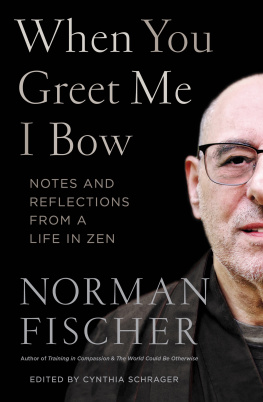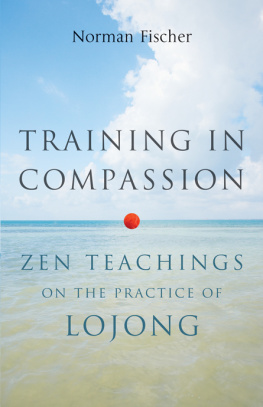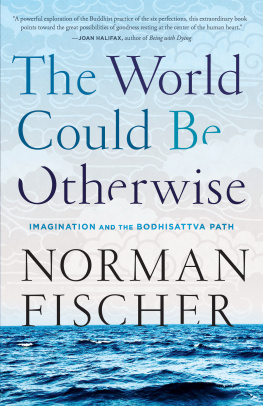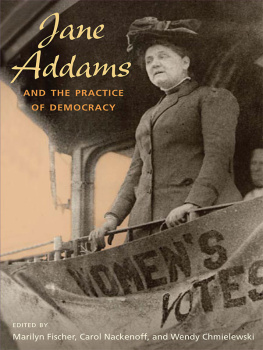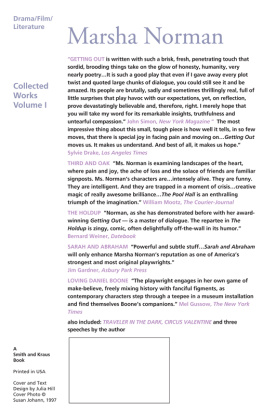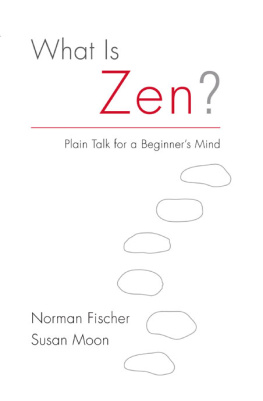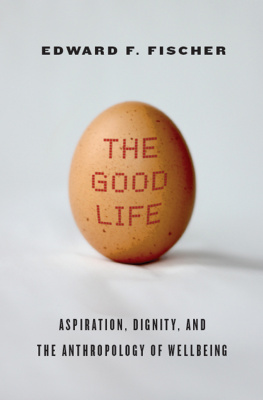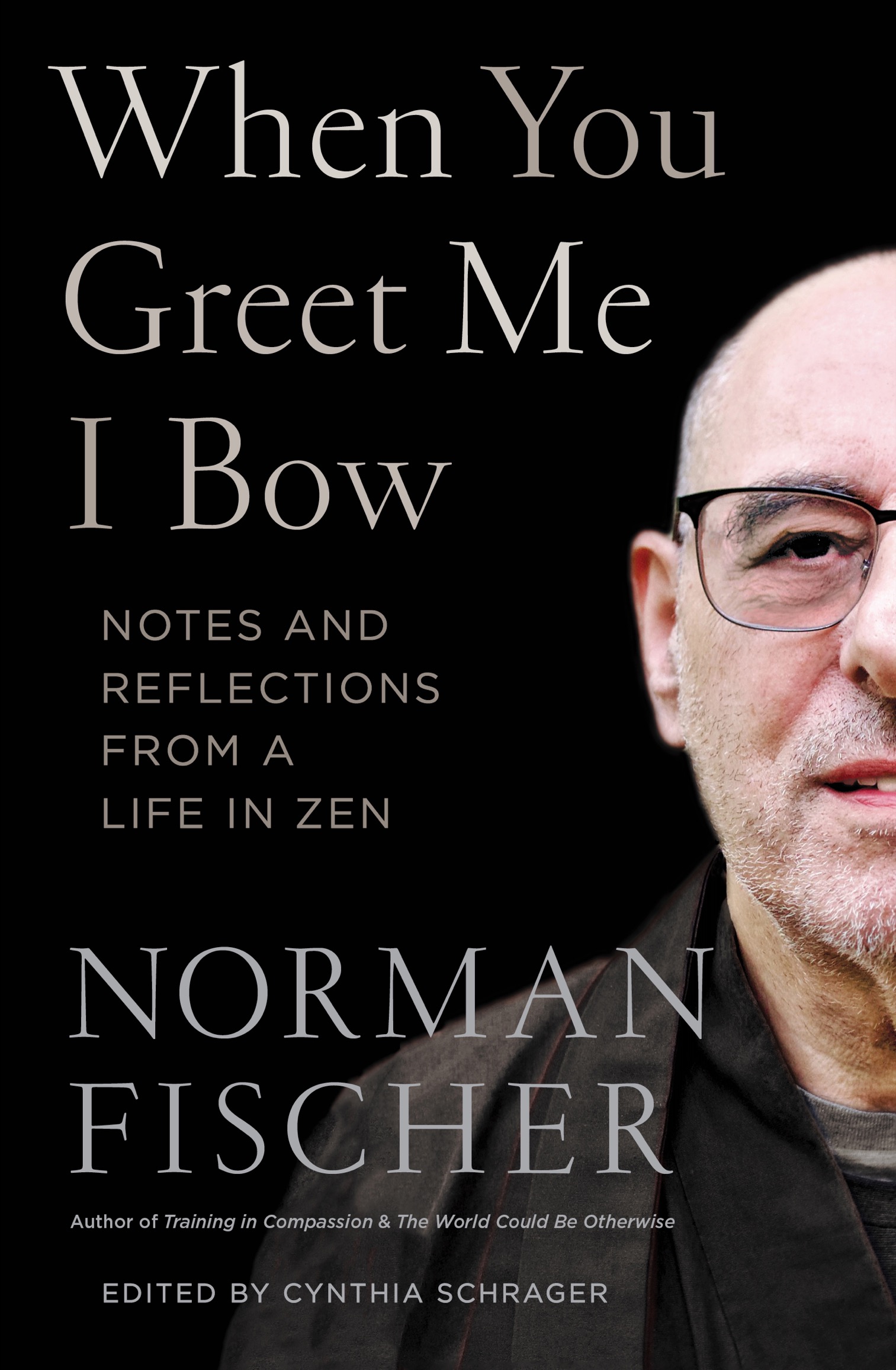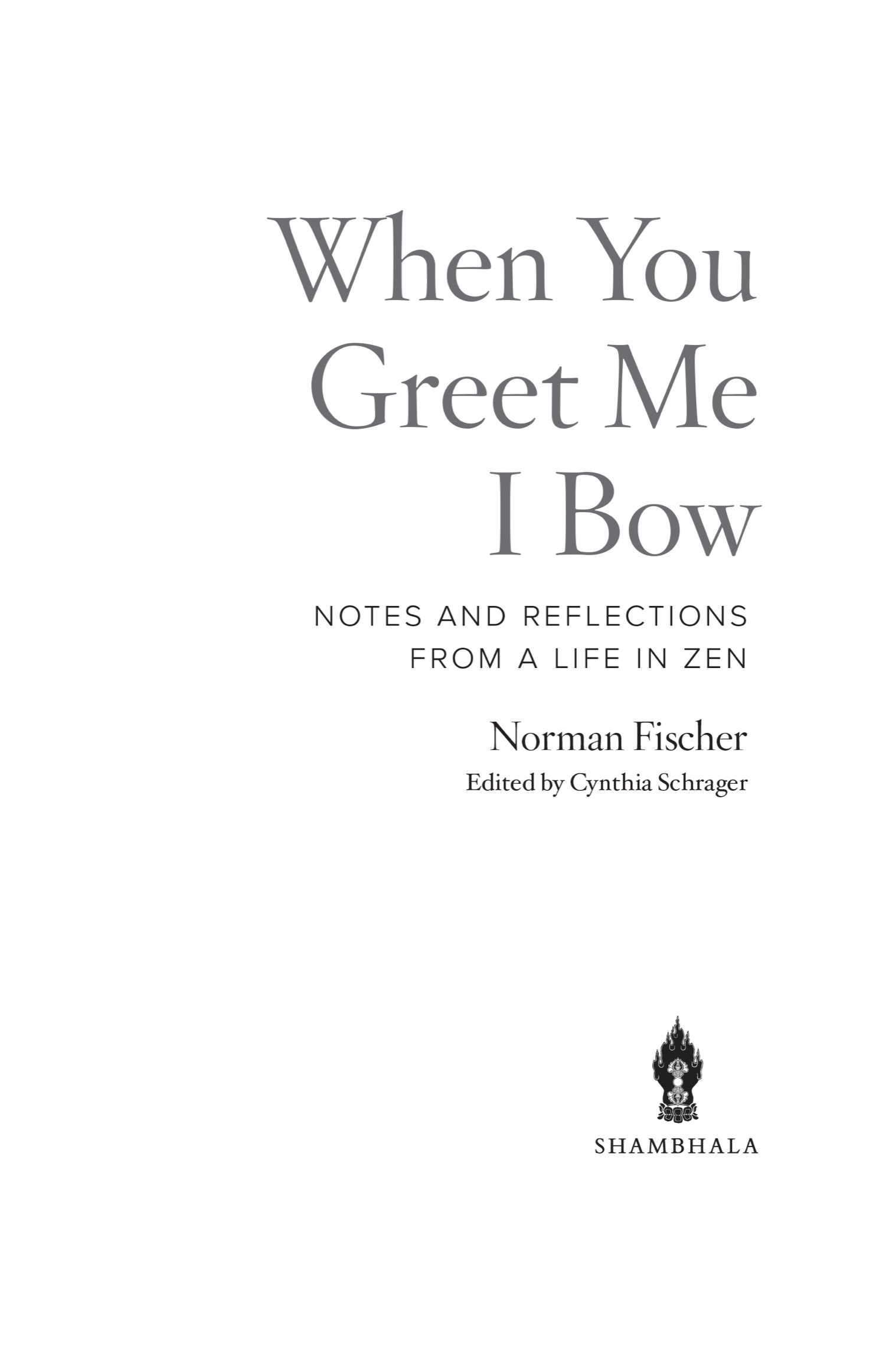Contents
Landmarks
Print Page List
Shambhala Publications, Inc.
4720 Walnut Street
Boulder, Colorado 80301
www.shambhala.com
2021 by Norman Fischer
Cover photo: Renshin Bunce
Cover design: Daniel Urban-Brown
Interior design: Gopa and Ted2, Inc.
All rights reserved. No part of this book may be reproduced in any form or by any means, electronic or mechanical, including photocopying, recording, or by any information storage and retrieval system, without permission in writing from the publisher.
For more information please visit www.shambhala.com.
Shambhala Publications is distributed worldwide by Penguin Random House, Inc., and its subsidiaries.
Library of Congress Cataloging-in-Publication Data
Names: Fischer, Norman, 1946 author. | Schrager, Cynthia, editor.
Title: When you greet me I bow: notes and reflections from a life in
Zen / Norman Fischer edited by Cynthia Schrager.
Description: Boulder, Colorado: Shambhala, 2021. | Includes bibliographical references.
Identifiers: LCCN 2020027636 | ISBN 9781611808216 (trade paperback)
eISBN 9780834843523
Subjects: LCSH : Zen Buddhism.
Classification: LCC BQ 9266. F 57 2020 | DDC 294. 3/927 dc23
LC record available at https://lccn.loc.gov/2020027636
a_prh_5.6.1_c0_r0
Longtan made rice cakes for a living. But when he met the priest Tianhuang, he left home to follow him.
Tianhuang said, Be my attendant. From now on, I will teach you the essential dharma gate.
After a year, Longtan said, When I arrived, you said you would teach me. But so far nothing has happened.
Tianhuang said, Ive been teaching you all along.
Longtan said, What have you been teaching me?
Tianhuang said, When you greet me I bow. When I sit you stand beside me. When you bring tea I receive it from you.
Contents
Editors Foreword
O N A GIVEN week in the Bay Area, you can sometimes attend one of Norman Fischers Dharma seminars in Tiburon one evening, hear him read poetry in Berkeley the next, and the following weekend join a Jewish meditation gathering hes leading in San Francisco. While marveling at his energy, I have happily run into overlapping circles of Normans friends, colleagues, students, and fans at all of the above, watching Norman segue comfortably between events, exchanging a Zen robe for a kippah or pair of jeans, depending on the local custom.
A transmitted teacher in the Soto Zen lineage of Suzuki Roshi, Norman served as coabbot of San Francisco Zen Center from 1995 to 2000, before leaving to lead the Everyday Zen Foundation, a string of sanghas on the west coast of North America stretching from Vancouver, Canada, to Chacala, Mexico. Norman has simultaneously remained deeply engaged with his Jewish roots, founding with his friend, the late Rabbi Alan Lew, the first synagogue-based meditation center, Makor Or. And ever since he graduated with an MFA from the University of Iowa Writers Workshop, poetry has been both vocation and passion, a steady counterpoint to his Zen practice. He has published twenty poetry volumes, as well numerous prose works on Zen.
Norman first approached me about this collection because he needed someone to track down and organize his body of Buddhist magazine writing. As he is a prolific writer, Normans copious output of articles was scattered, with no reliable inventory either on paper or in his head. I came to enjoy my task as a treasure hunt. Many of the journals I searched (Buddhadharma, Inquiring Mind, Lions Roar, Tricycle, and The Sun) have extensive online archives, and even more articles came online during the several years we contemplated this collection. I also spent a pleasant afternoon digging through the entire output of Turning Wheel magazine in a couple of bankers boxes that Susan Moon, its former editor, unearthed from the attic of her North Berkeley brown shingle. There were also serendipitous finds made possible by the internet, such as the short piece Norman wrote for the fiftieth anniversary of Berkeley Zen Center, a tribute to his teacher Mel Weitsman, which I turned up while engaged in a completely unrelated search. In the end, I sifted through more than seventy-five pieces to cull this collection, listening carefully for the themes that Norman kept returning to again and again. What resulted is a record of his insights, musings, and preoccupations over three decades of Zen practice.
The first section, A Buddha and a Buddha, contains essays that explore Zen as a practice of intimate encounter and speak to the centrality of relationships: teacher and student, marriage, parenting, spiritual friendship, communities of practice, and the relationship with practice that is simultaneously a relationship with oneself and with all things. In one essay, Norman presents himself directly and humorously as a reluctant teacher of Zen, reinforcing his bona fides as an heir to this paradoxical, irreverent tradition. Other essays in this section explore renunciation, celibacy, sexuality, love, and spiritual friendship as fundamental aspects of human experience.
The next section, Form Is Emptiness, includes discussions of more philosophical Zen teachings on impermanence, suffering, and emptiness of self, traditionally known as the three marks of existence. Very personal essays on suffering the loss of loved ones, including his mother and his best friend, speak to the grief and beauty of impermanence. Other essays in this section consider the imagination as an expression of Zen mind and speak directly about Normans twinned spiritual practice and writing practice.
The third section, East/West, takes up the issue of cultural encounters: between Zen in Japan and Zen in the West, between Judaism and Zen, and between contrasting philosophies of the self. Some of these essays pose questions about how Buddhist traditions are transmuted as they pass from one culture to another, both shedding and gathering dimensions. Others mash up Zen and Jewish traditions to produce an entirely fresh, syncretic style of commentary that explores the existence of God, the texture of suffering, and the path of spiritual liberation.
The essays in the last section, Difference and Dharma, all speak to a common paradox. Zen is a practice of nonduality, and yet we live in a world divided by difference and conflict. These are also the essays in the collection that turn most directly to questions of social activism and social engagement. Several demonstrate Normans decades-long commitment to racial justice and his efforts on behalf of gender inclusion in Buddhist communities, which he contextualizes in terms of an honest reflection on his own identity as a Jewish white man. In this, he anticipates and champions conversations that are only now getting their fuller due. Other essays turn to social justice issues more broadly, addressing ethnic conflicts, violence, and war; our terrifying climate emergency; and the problem of evil as a fundamental aspect of human expression. Collectively, these essays ask of us: what types of social engagement are appropriate responses in our broken world?
The collection also includes new writing. Normans Notes introduce the book and precede each section, offering present reflections on the themes that have interested him over a lifetime of practice. One of the great pleasures of working on this book has been participating in the unfolding of Normans dialogue with his previously published writings (in addition to the notes, some of the essays were substantially revised for this collection). The pieces that resulted are not definitive statements, any more than the original essays were. They are fresh glimpses into the impermanent thoughts and perceptions of a wide-ranging and original writer, thinker, and transmitter of dharma.

